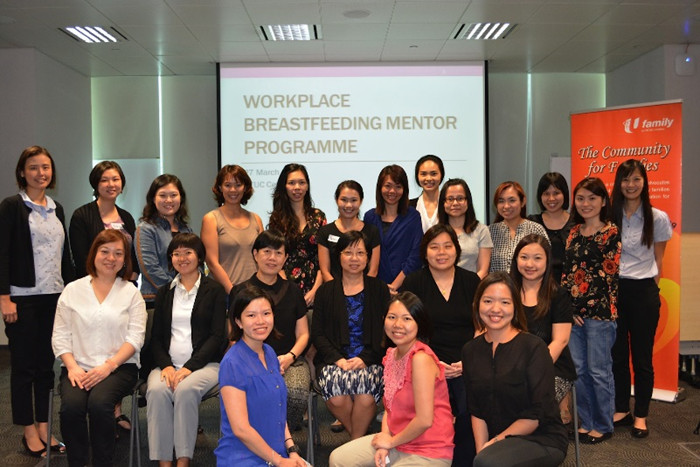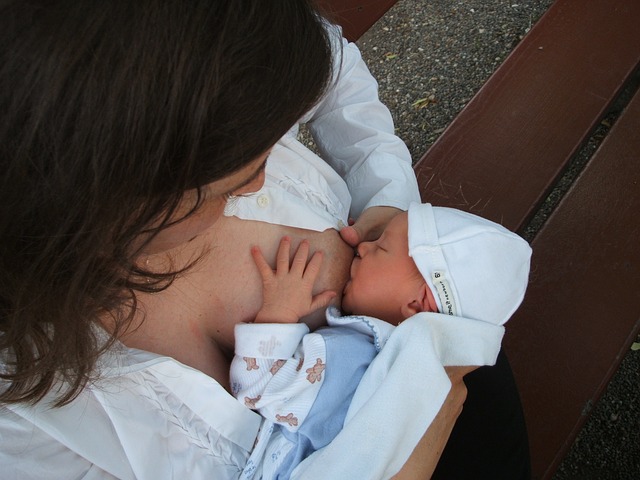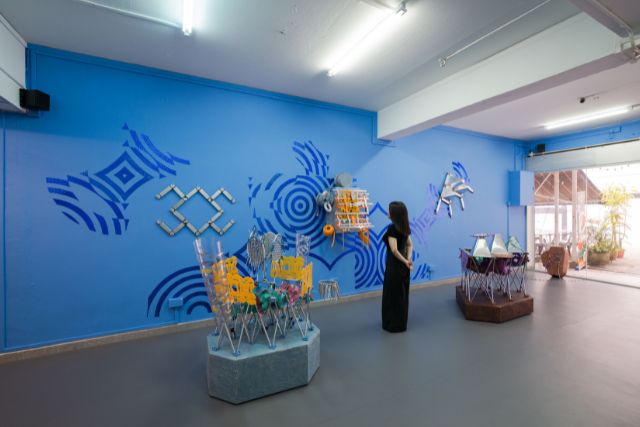It can be a challenge to return to work after giving birth. And for mothers who wish to continue to breast feed their baby, where do they even start? Here are a tips from a full-time working mother, Elaine Low, and how she did it.

Preparations as you return to work
For mothers who are preparing to return to work, she shares the following preparation (physical or mental) that mothers can do to prepare themselves for the journey ahead if they intend to continue to provide breast milk for their children:
1. Get the support of your company – your boss, supervisor and colleagues
Before returning to work, talk to your boss or supervisor about your need to pump during the workday and try to get their support.
2. If your office does not have a lactation room, look for a clean, private place that you can pump
If you are going to use an electric pump, be sure that the place you have found comes with an electrical outlet.
3. Think about where you can store your milk
Is there a communal fridge that you can use or will you need to use a cooler bag?
4. Think through the logistics of bringing all your pumping paraphernalia to and from work every day
Which bag will you use to carry your pump? Which cooler bag? How many ice packs do you need? How long can your ice packs last? Will you bring your pump up and down every day or will you leave it at work?
Other common challenges
Other than not being able to pump enough, another common challenge faced by breastfeeding mothers after they return to work is handling with frequent night-wakings by their infants. Night wakings are actually quite normal and common in babies and children up to 2 years old.
As a full-time working mother, she has found that night nursing was a way for her to reconnect with her baby. As such, she does not abide to sleep training rules to sleep train babies to get them to sleep through the night.
In such a situation, she believes that co-sleeping and bed-sharing is how both mummy and baby are able to get the most sleep, because baby is able to latch on and nurse even as she continues to sleep.
Not taking a bottle is also another common complaint. After 4 months of nursing directly, some babies are reluctant to accept a plastic substitute instead of the warm cuddles of mummy’s embrace.
Some babies may outright refuse any artificial teat, while others may grudgingly drink small amounts of milk throughout the day. While this often causes the mother, and caregiver, to be distressed, it may be helpful to know that it would not actually cause baby any harm if he chooses to go without milk for hours during the day; it is not much different from babies who sleep and go without milk for long stretches at night.
It is fairly common for older breastfed babies to begin rejecting bottles after some time, especially after they begin solids. This is normal and just means that baby is able to satisfy his hunger with solid food but prefers the warmth and comfort of milk from mummy’s breast. Just follow baby’s cues and offer as much milk as he is willing to take.
An encouragement from Elaine
Hang in there! You are doing the right thing by being committed to providing your child with breast milk even when you are at work. If your baby is still small and you are struggling to make your daily pump output, you can look forward to catching a small break when baby begins on solid food, and you can top up with solids if your pump output is not sufficient.
After 12 months, if baby is well established on solid food, you can try to cut back or even cut out pumping at work. So breastfeeding does get easier if you stick it out long enough.
“Breastfeeding is not just a way for you to nourish your child physically, but also a way for you to nurture your child emotionally.”
Don’t focus too much on the nutritional aspect of breastfeeding and end up neglecting the emotional component of it. There are lots of benefits for baby to nurse at his mother’s breast and getting the milk is only one of them.
Going back to work necessarily entails your child having to take a bottle, but do try to keep direct nursing as one of the cornerstones of your relationship with your child.
Nursing your child strengthens the bond, which is helpful for a working mother, and also helps to prolong the breastfeeding relationship, compared to exclusive pumping.
Workplace Breastfeeding Mentor Programme

To prepare workplaces to be baby friendly, NTUC U Family and The Association for Breastfeeding Advocacy Singapore (ABAS) have jointly developed a Workplace Breastfeeding Mentor Programme to provide information and support to new mothers in breastfeeding. The Workplace Breastfeeding Mentors would be trained by accredited trainers from ABAS.
Participants will learn the basics of breastfeeding, how to make the transition to expressing milk at work after their maternity leave, and how to support other breastfeeding colleagues. Interested mothers can seek their employers’ support to let them attend the 1-day course.
Should you like to know more about this programme, please contact U Family at ufamily@ntuc.org.sg
By Yvonne Chee
This article is part of Breastfeeding with Love campaign, initiated by The New Age Parents and New Age Pregnancy.
Join the Breastfeeding with Love Group to find out more and be part of our breastfeeding online community!
|
|
Click on the logos to find out more about our supporting partners.
* * * * *
Like what you see here? Get parenting tips and stories straight to your inbox! Join our mailing list here.
Want to be heard 👂 and seen 👀 by over 100,000 parents in Singapore? We can help! Leave your contact here and we’ll be in touch.



























































